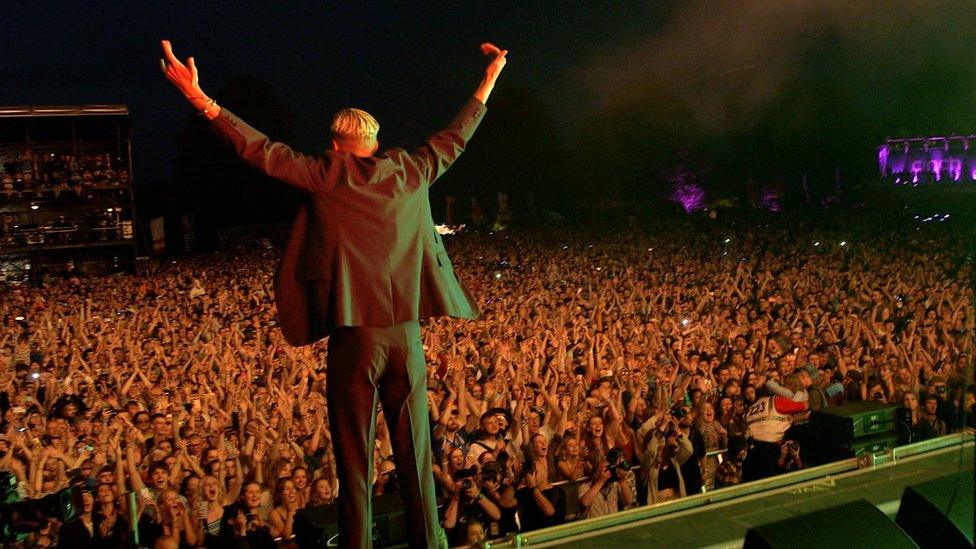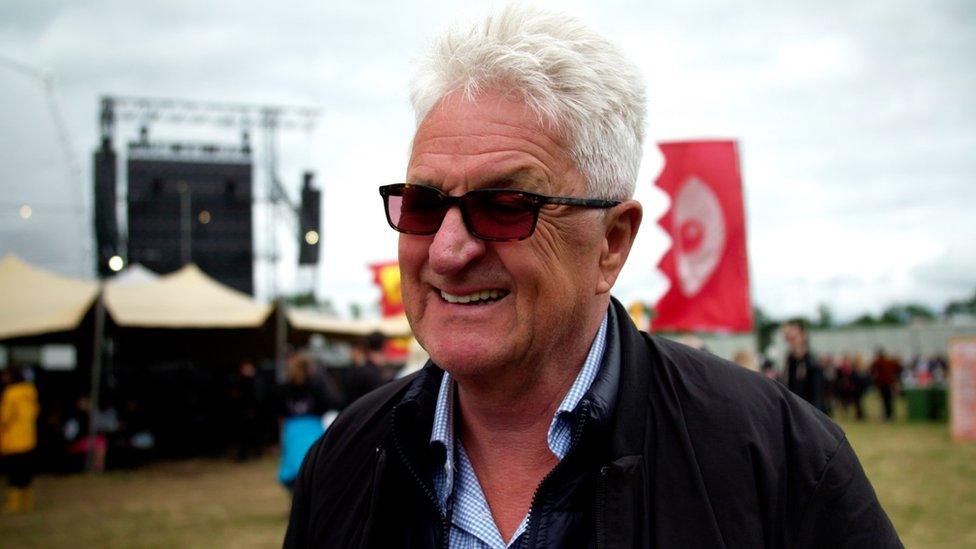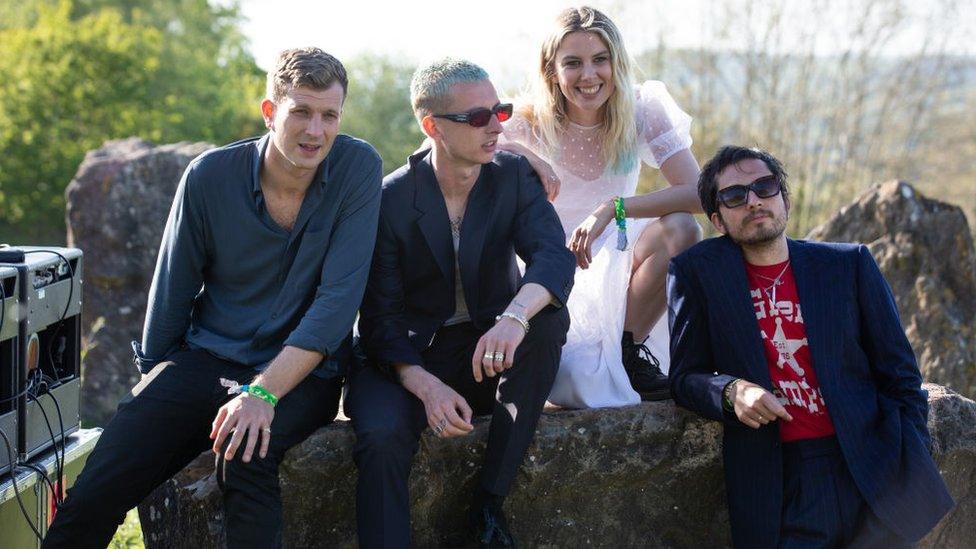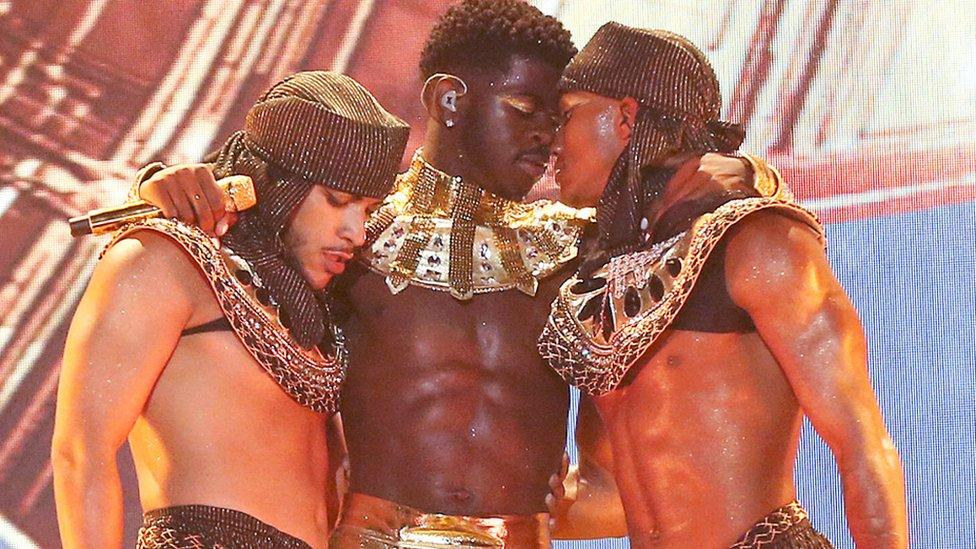Wolf Alice: 'Festival line-ups are still playing it safe'
- Published

Nothing is certain right now, especially if you're a festival booker with eyes on next summer.
Flying acts in from abroad comes with added risks these days - after all, who knows where the world will be in 10 or 12 months?
On the other hand, you've had a tough couple of years and you're desperate to sell some tickets.
For Mercury Prize-winning band Wolf Alice, this perfect storm represents an amazing opportunity for the industry to shake things up and create the next generation of home-grown headliners.
But the band's accused bookers of "playing it safe" and letting the opportunity go to waste.

Theo Ellis, from Wolf Alice, takes to the stage at Latitude Festival 2021 in our documentary Back to Live: How Covid Changed Music
"There's a danger that people know what sells tickets and will rest on their laurels a little bit because, you know, everyone's had such a tough year financially," bassist Theo Ellis tells us.
"So I think there might still be a climate of paying heritage acts to come back and play Reading for the 16th time."
It's May 2021 and we're at the band's rehearsal studio in west London filming for our documentary Back to Live: How Covid Changed Music.
It's about the lasting impacts the pandemic could have on gigs and festivals and sees us going behind the scenes with some of the country's biggest artists.
"There is a point where you've just got to take a punt on the younger band or act and give them the chance to elevate themselves [to a headliner]," drummer Joel Amey says.
"Oh, we've got to play a song for this?" - what happened when we dropped in on a Wolf Alice rehearsal
But this is about more than just the names at the very top of the posters.
For the most part, British festival line-ups are still male-dominated and if the pandemic does encourage bookers to "play it safe", this becomes less likely to change.
Before it was cancelled in 2020, Reading and Leeds Festival faced criticism, external for announcing a line-up where only about 20% of the acts featured women.
Singer and guitarist Ellie Rowsell says she's often disappointed with what she sees.
"There's an abundance of amazing female-identifying artists, it's not like they're not there - you just might have to dig a little deeper perhaps."
Theo adds: "Nothing will change unless you start to take what shouldn't be risks from festival bookers' perspectives, but seem to be because they don't want to do it."

Melvin Benn, from Festival Republic, thinks talent bookers do a good job
Arguably the most powerful man in the UK's festival industry, though, disagrees.
Melvin Benn not only runs Reading and Leeds but was behind the Download Festival pilot and the Latitude Festival pilot - the first two major music events to go ahead in England post-pandemic.
"I would reject the idea that festival talent buyers are not ambitious and are not pushing the boundaries all of the time," he tells us.
"That's why we all have small stages and are always trying to bring the talent pool all the way through.
"I think in the main the talent buyers do a really good job of providing the talent that people are listening to and that they want to watch."


Follow Newsbeat on Instagram, external, Facebook, external, Twitter, external and YouTube, external.
Listen to Newsbeat live at 12:45 and 17:45 weekdays - or listen back here.
- Published9 June 2021

- Published24 August 2021
